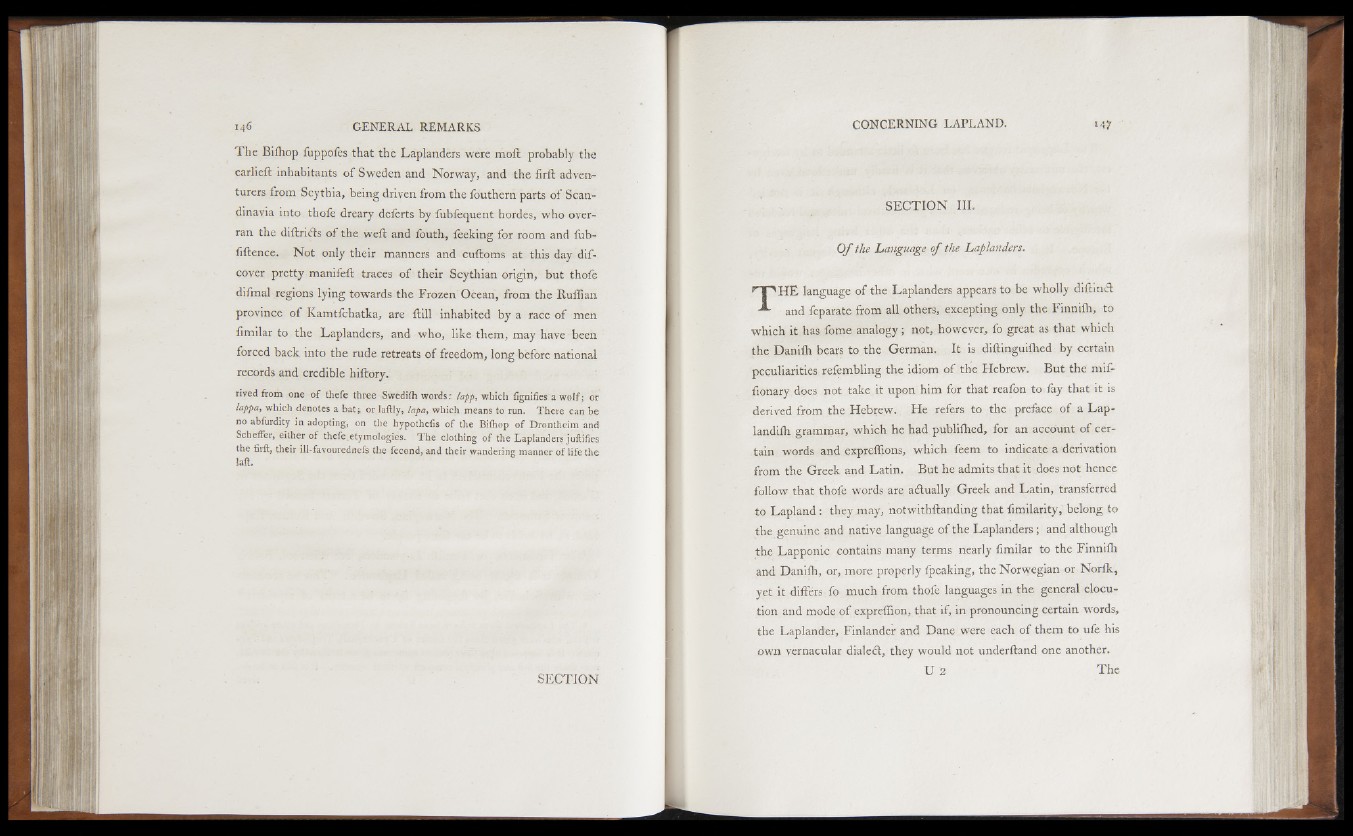
The Bilhop fuppofès that the Laplanders were moil probably the
earlieil inhabitants of Sweden and Norway, and the firft adventurers
from Scythia, being driven from the fouthern parts of Scandinavia
into thofe dreary deierts by fubfequent hordes, who overran
the diftridls of the weft and fouth, feeking for room and fub-
fiftence. Not only their manners and cuftoms a t this day dif-
cover pretty manifeft traces of their Scythian origin, but thofe
difmal regions lying towards the Frozen Ocean, from the Ruffian
province of Kamtfchatka, are flill inhabited by a race of men
fimilar to the Laplanders, and who, like them, may have been
forced back into the rude retreats of freedom, long before national
records and credible hiflory.
rived from one of thefe three Swediih words lapp, which fignifies a wolf; or
lappa, which denotes a bat j or laftly, lapa, which means to run. There can be
no abfurdity in adopting, on the hypothefis of the Biihop of Drontheim and
Scheffer, either of thefe.etymologies. The clothing of the Laplanders juftifies
the firft, their ill-favourednefs the fecond, and their wandering manner of life the
laft.
SECTION III.
Of the Language of the Laplanders.
n p H E language of the Laplanders appears to be wholly diftinct
and feparate from all others, excepting only the Finnilh, to
which it has fome analogy; not, however, fo great as th a t which
the Danifh bears to the German. It is diftinguifhed by certain
peculiarities refembling the idiom of the Hebrew. But the mif-
fionary does not take it upon him for that reafon to fay that it is
derived from the Hebrew. He refers to the preface o f a Lap-
landiih grammar, which he had publiihed, for an account of certain
words and expreffions, which feem to indicate a derivation
from the Greek and Latin. But he admits th a t it does not hence
follow that thofe words are actually Greek and Latin, transferred
to Lapland : they may, notwithftanding that fimilarity, belong to
the genuine and native language of the Laplanders; and although
the Lapponic contains many terms nearly fimilar to the Finniih
and Danifh, or, more properly ipeaking, the Norwegian or Norik,
yet it differs fo much from thofe languages in the general elocution
and mode of expreflion, that if, in pronouncing certain words,
the Laplander, Finlander and Dane were each of them to ufé his
own vernacular dialed!, they would not underiland one another.
U 2 The